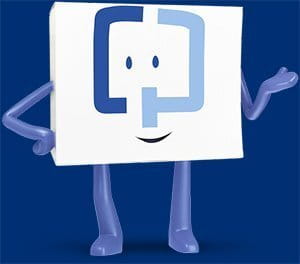Real Cologuard® story: Greta
Screened with Cologuard: Colorectal cancer survivor
There is nothing more precious to Greta than her family and her faith. And during tough times, she looks to her family for strength.
For more than 20 years, Greta worked nights – giving her more time during the day with her four children. Once she retired, she was looking forward to spending even more time with her five grandchildren.
Shortly after Greta retired in 2018, her healthcare provider reminded her of the importance of screening for colorectal cancer. Though Greta stayed up to date with check-ups, she admitted she had never been screened and was overdue.
Her healthcare provider suggested Cologuard as an appropriate option. Greta was at average risk and agreed to screen with Cologuard.
“I thought it was easy,” she said.
About two weeks after receiving her kit at home and returning it to the lab, her healthcare provider shared the result, which was positive. Greta quickly followed up with a colonoscopy and surgery, which revealed stage III colorectal cancer. After additional tests and scans, Greta was told she needed chemotherapy.
“It was a rough road,” she said. “I had a battle on my hands from the time I had surgery until I finished chemotherapy.”
Though her family was devastated, they all came together to help. Her husband, Jack, balanced work and took care of the home while her daughter drove to her treatments.
“By the time I started to feel good, it was time to have another treatment,” she said.
Chemotherapy was more than a physical challenge for Greta – she felt the emotional burden of missing things she loved, especially keeping up with her grandchildren. During treatment, Greta found strength in her faith.
“I would lay in bed and I would pray,” she said.
Greta completed chemotherapy after 12 treatments and was eager to get back to all the things she had to put on hold during treatment – Sunday drives with Jack and cheering at her grandson’s games.
“When I got to go watch my grandson play baseball, I felt like I was free,” she laughed.
Greta continues to visit her oncologist regularly, and her follow-up evaluations have returned with no signs of cancer. Although her life after treatment is a little different, she chooses to stay positive – she has a lot to be thankful for.
“I'm not as strong as I used to be, but I am blessed to be alive, so I can get around that,” she said. “I can get out and enjoy life again.”
Cologuard is intended to screen adults 45 years of age and older who are at average risk for colorectal cancer by detecting certain DNA markers and blood in the stool. Do not use if you have had adenomas, have inflammatory bowel disease and certain hereditary syndromes, or a personal or family history of colorectal cancer. Cologuard is not a replacement for colonoscopy in high risk patients. Cologuard performance in adults ages 45-49 is estimated based on a large clinical study of patients 50 and older. Cologuard performance in repeat testing has not been evaluated.
The Cologuard test result should be interpreted with caution. A positive test result does not confirm the presence of cancer. Patients with a positive test result should be referred for colonoscopy. A negative test result does not confirm the absence of cancer. Patients with a negative test result should discuss with their doctor when they need to be tested again. False positives and false negative results can occur. In a clinical study, 13% of people without cancer received a positive result (false positive) and 8% of people with cancer received a negative result (false negative). Rx only.

